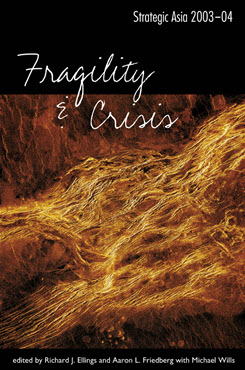Indonesia
Turbulent Times-From Autocracy to Democracy
Indonesia will face important political milestones in 2004, including direct election of the president, continuing devolution of power, and the development of party politics.
Although it has undergone many reforms, the military remains the most powerful force in Indonesian society. However, the rise of an inward-looking military leadership lacking international sophistication is worrisome, and may challenge the successful creation of democratic institutions.
Indonesia’s large and predominantly moderate Muslim population, strategic location, and abundant resources make it a regional power of great importance to U.S. interests in Asia. Indonesia is in the fifth year of a transition from autocracy to democracy, and faces simultaneous political, economic, and security challenges. Hard hit by the 1997–98 Asian financial crisis, Indonesia is troubled by secessionist guerrillas, ethnic and religious conflicts, and Muslim extremists. The terrorist bombings of October 2002 in Bali and August 2003 in Jakarta illustrate the presence of terrorist cells lodged deep in Indonesia’s social fabric. Indonesia will face important political milestones in 2004, including direct election of the president, continuing devolution of power, and the development of party politics.
Although it has undergone many reforms, the military remains the most powerful force in Indonesian society. However, the rise of an inward-looking military leadership lacking international sophistication is worrisome, and may challenge the successful creation of democratic institutions.
Strategic Asia
The Strategic Asia annual edited volume incorporates assessments of economic, political, and military trends and focuses on the strategies that drive policy in the region. Learn more about Strategic Asia.


